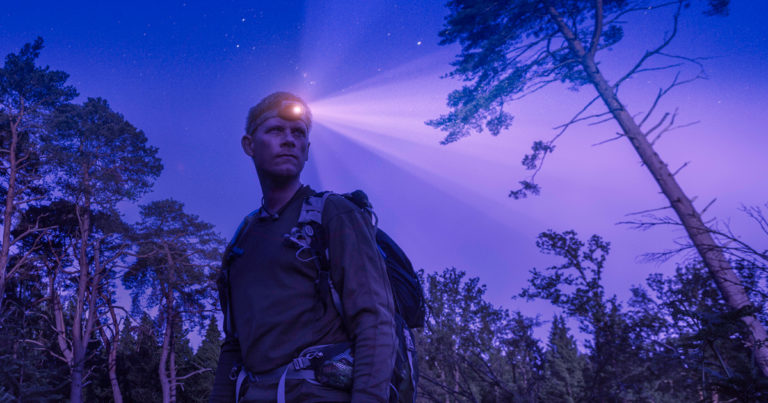Scout leaders, let’s shine some light on flashlight etiquette

Your eyes are beginning to adjust to the growing darkness. The trail in front of you is becoming clearer and clearer.
And then, like a firework on July 5th, something unexpectedly bright fills the sky. You’re momentarily blinded.
Whenever someone switches on one of those super-bright flashlights or headlamps, that person ruins the night vision for everyone else. At best this is annoying; at worst, it could mess with your circadian rhythm and affect your sleep.
Scenarios like this one play out every weekend as packs, troops and crews go camping. It’s time to clarify that while flashlights are an important Scouting tool, you don’t need baseball-stadium lighting to camp in the dark.
This happened one too many times to a Scouter in Tennessee who emailed me recently. The Scouter, Alex Johnston from Pack 348 of the Sequoyah Council, called this “a topic I notice needs some discussion in our local Scouting community.”
“It seems that many Scouters think the idea is to turn nighttime into daylight,” Johnston writes. “Instead, the dimmest light that allows us to accomplish the necessary task is best, so we don’t rob those in and around our campsite of their night vision.”
Ways to be a better flashlight user
- Hide the light source (bulb or filament) from view to reduce the harshness and impact on night vision. You could bounce the light off the ceiling of your tent, pop-up or pavilion.
- Equip younger Scouts with LED glowstick necklaces instead of bright headlamps. They’re cheap and easier to track and identify in the dark.
- When walking down paths or looking for gear in bags, all you really need is a zipper pull-style pinch LED light. “I buy these in quantity as Scout handouts as they’re a compact way to achieve your essentials,” Johnston tells me.
- Lights with red bulbs won’t disturb others or ruin night vision. They can be found as an option in flashlights, headlamps, or even those zipper pull lights. “Plus, they’re a great way to start up a conversation on night vision, why it’s important and how to improve it,” Johnston writes. “Scouts love hearing how pilots and soldiers use red light and might even be temporarily enticed into being ‘stealthy’ right before bed.”
- Don’t drive through campsites at night. If you camp in your car, disable internal and external lighting that is usually automatically activated when a door opens.
- Be aware of where your flashlight is pointed at all times. If you point it at someone’s tent when you walk by at night, reflective fabrics cause the whole tent to light up. This disturbs the sleep of the tent’s occupants.
Your bright ideas, please
How do you practice and promote flashlight etiquette? Share a comment below.
Scout leaders, let’s shine some light on flashlight etiquette
